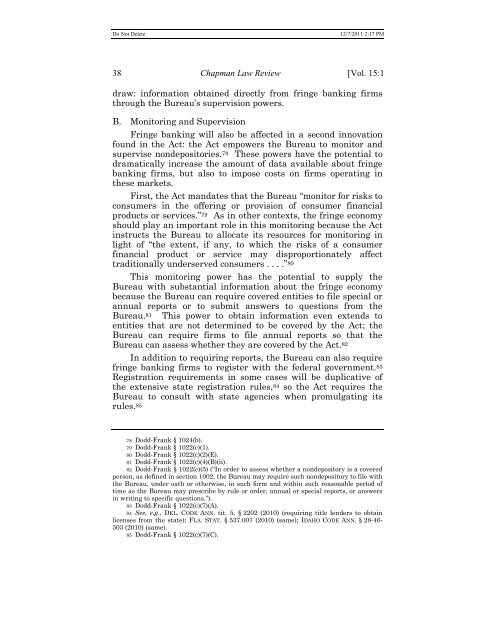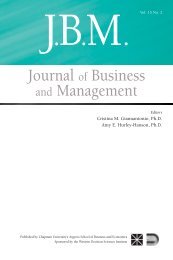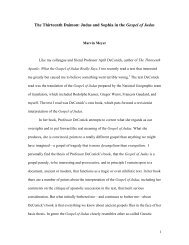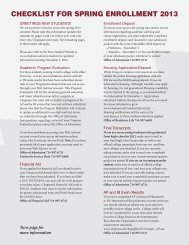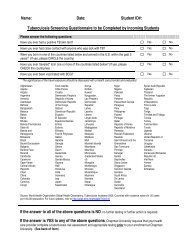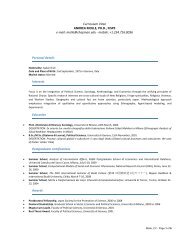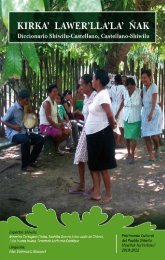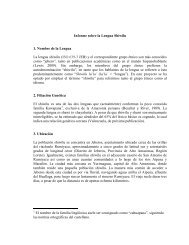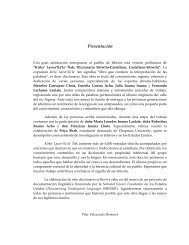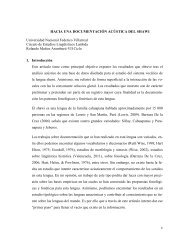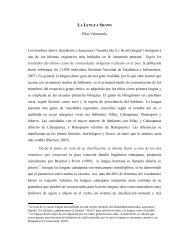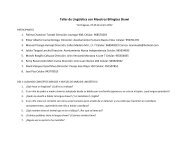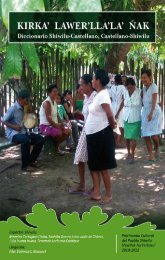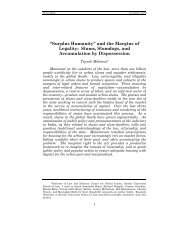Chapman Law Review - Chapman University
Chapman Law Review - Chapman University
Chapman Law Review - Chapman University
Create successful ePaper yourself
Turn your PDF publications into a flip-book with our unique Google optimized e-Paper software.
Do Not Delete 12/7/2011 2:17 PM<br />
38 <strong>Chapman</strong> <strong>Law</strong> <strong>Review</strong> [Vol. 15:1<br />
draw: information obtained directly from fringe banking firms<br />
through the Bureau‘s supervision powers.<br />
B. Monitoring and Supervision<br />
Fringe banking will also be affected in a second innovation<br />
found in the Act: the Act empowers the Bureau to monitor and<br />
supervise nondepositories. 78 These powers have the potential to<br />
dramatically increase the amount of data available about fringe<br />
banking firms, but also to impose costs on firms operating in<br />
these markets.<br />
First, the Act mandates that the Bureau ―monitor for risks to<br />
consumers in the offering or provision of consumer financial<br />
products or services.‖ 79 As in other contexts, the fringe economy<br />
should play an important role in this monitoring because the Act<br />
instructs the Bureau to allocate its resources for monitoring in<br />
light of ―the extent, if any, to which the risks of a consumer<br />
financial product or service may disproportionately affect<br />
traditionally underserved consumers . . . .‖ 80<br />
This monitoring power has the potential to supply the<br />
Bureau with substantial information about the fringe economy<br />
because the Bureau can require covered entities to file special or<br />
annual reports or to submit answers to questions from the<br />
Bureau. 81 This power to obtain information even extends to<br />
entities that are not determined to be covered by the Act; the<br />
Bureau can require firms to file annual reports so that the<br />
Bureau can assess whether they are covered by the Act. 82<br />
In addition to requiring reports, the Bureau can also require<br />
fringe banking firms to register with the federal government. 83<br />
Registration requirements in some cases will be duplicative of<br />
the extensive state registration rules, 84 so the Act requires the<br />
Bureau to consult with state agencies when promulgating its<br />
rules. 85<br />
78 Dodd-Frank § 1024(b).<br />
79 Dodd-Frank § 1022(c)(1).<br />
80 Dodd-Frank § 1022(c)(2)(E).<br />
81 Dodd-Frank § 1022(c)(4)(B)(ii).<br />
82 Dodd-Frank § 1022(c)(5) (―In order to assess whether a nondepository is a covered<br />
person, as defined in section 1002, the Bureau may require such nondepository to file with<br />
the Bureau, under oath or otherwise, in such form and within such reasonable period of<br />
time as the Bureau may prescribe by rule or order, annual or special reports, or answers<br />
in writing to specific questions.‖).<br />
83 Dodd-Frank § 1022(c)(7)(A).<br />
84 See, e.g., DEL. CODE ANN. tit. 5, § 2202 (2010) (requiring title lenders to obtain<br />
licenses from the state); FLA. STAT. § 537.007 (2010) (same); IDAHO CODE ANN. § 28-46-<br />
503 (2010) (same).<br />
85 Dodd-Frank § 1022(c)(7)(C).


